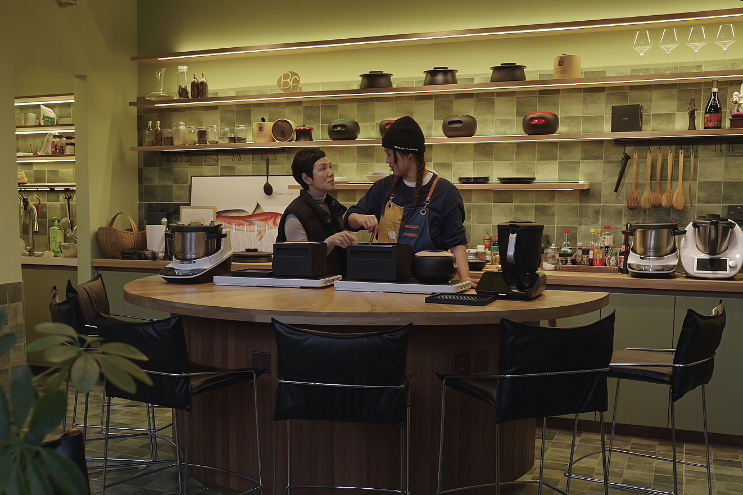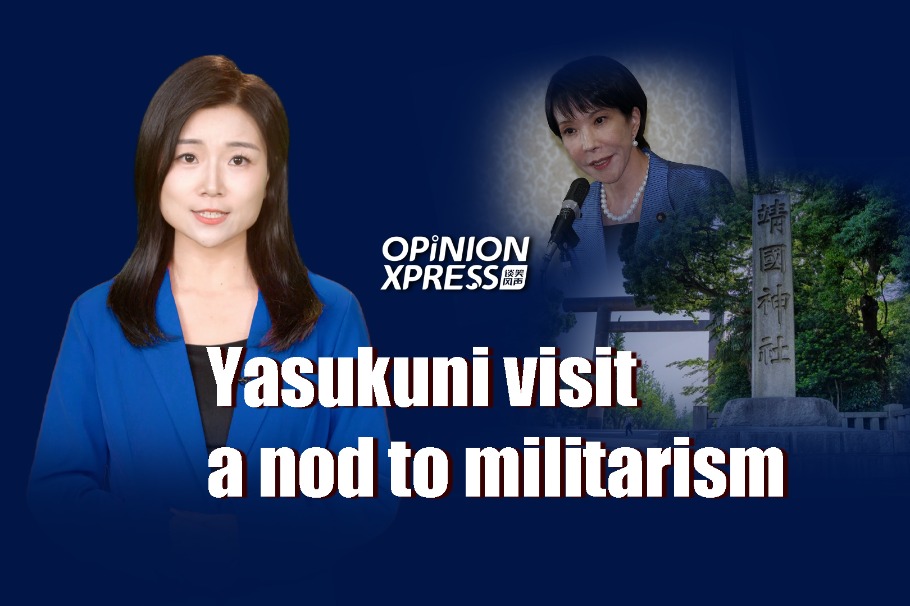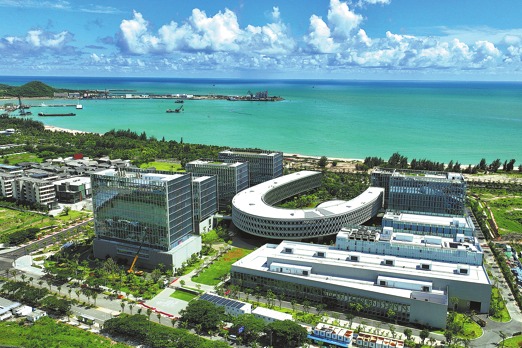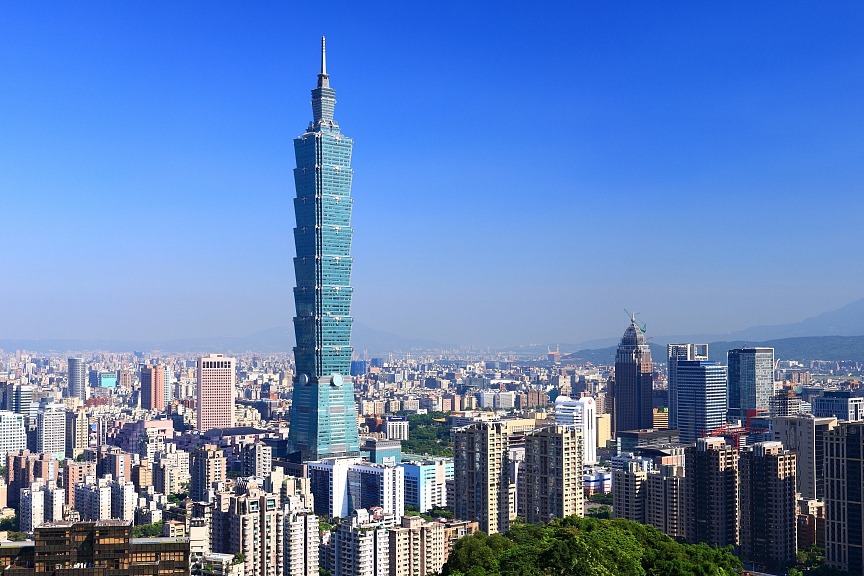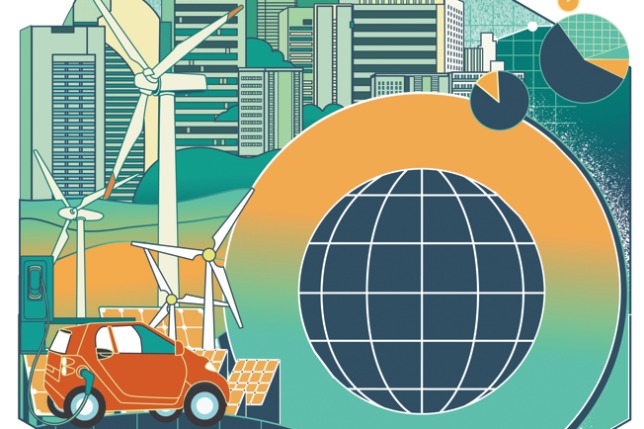From discord to harmony
For the good of themselves and others, China and the EU need to work together to find a way to get along


For the good of themselves and others, China and the EU need to work together to find a way to get along
Amid the fast-moving and chaotic international situation, a multipolar world is clearly in the making. As an integral part of that changing landscape, China-EU relations are also undergoing complex changes.
Influenced by the COVID-19 pandemic and the Ukraine crisis, the European Union has been extensively discussing and altering its perception of China, and adjusting its policies and ways of interaction, raising uncertainty and instability in bilateral relations.
Therefore, both China and the EU need to urgently engage in dialogues and exchanges at all levels and in various areas, in order to manage changes, update strategies and find the right way to get along.
To ensure agile and stable relations, it is necessary for the two sides to understand the origin of their contradictions and differences and accurately assess the motivations of the EU adjusting its policy toward China.
The two sides' different perceptions about the changes taking place in the global landscape mean they have divergent viewpoints.
As one of the leaders of the existing international order, the EU is more skeptical and pessimistic about the direction of change. It considers itself to be "frustrated in globalization" and a "victim of unfair competition and great power rivalry".
In contrast, China has a more optimistic outlook. It is not only shaping a new and all-around international image for the country, but also taking the lead in launching concrete policies and actions, such as the Belt and Road Initiative, to help realize its vision of building of a community with a shared future for mankind.
Both China and the EU have adopted a "growing stronger" strategy as the main direction to cope with changes and safeguard their interests, which has lead to a certain competition. China has set out the goal of building a great modern socialist country with common prosperity for everyone, and becoming strong after growing rich.
The EU is also seeking to grow bigger and stronger, accelerating the transformation from merely a trader and an economy to a geopolitical actor. Against this backdrop, the focus of the EU's China policy is shifting from the previous "economy-led politics" and "soft power" to "politics-led economy" and "hard defense".
Finally, both China and the EU have seen noticeable changes in their respective policy inclinations, leading to differences and contradictions in the way they interact with each other.
In response to the headwinds to globalization and challenges to political multipolarity, countries have been, to varying degrees, prioritizing domestic affairs, which are now guiding diplomatic, economic and trade activities. There have been increased frictions as a result, while the room for compromise has shrunk.
In recent years, the EU has been honing its geopolitical strategies. It has constructed a comprehensive offensive and defensive system, and implemented targeted policy tools, in order to obtain advantages in its relations with China.
Refusing to see its interests jeopardized, China has taken various countermeasures to restrain the EU's actions.
China and the EU have come a long way in developing bilateral ties and robust economic interdependence. With shared responsibilities for maintaining world peace and development, both sides should seek to navigate a way through their current differences.
In the second half of 2022, China and the EU agreed to resume face-to-face exchanges and maintain a stable relationship. Thanks to their dialogues and exchanges this year, bilateral relations are on track to a steady recovery, which is not only a sign of the inherent vitality and resilience of China-EU relations, but also valuable experience for the future well-being of their relationship.
China and the EU need to engage in in-depth discussions and seek consensus on the way forward for a multipolar world, their respective roles, and the creation of new international rules to govern the world order.
Although somewhat reluctant, an increasing number of European countries are beginning to concede that a multipolar world is inevitable. They need to get over their sense of frustration and work with China to address the issues and challenges that a multipolar world may bring.
Both China and the EU are active advocates and defenders of multilateralism. They have ample space for dialogue and cooperation in bringing multilateralism to life by setting up effective rules for navigating a multipolar world order.
At this crucial crossroads for world development, China and the EU need to reconfirm their strategic and comprehensive partnership, as well as their shared principles for cooperation.
China and the EU represent two of the world's major forces, big markets and great civilizations. Stable China-EU relations hold irreplaceable significance for maintaining global strategic stability. As long as China and the EU move in the same direction, bloc confrontation will not take shape and the world will not have to endure another Cold War.
China and the EU share common interests spanning political consensus, economic and trade cooperation, as well as cultural and social exchanges. These are the hard-won results of the joint efforts by both sides and deserve to be cherished and maintained through continued cooperation.
Under the principle of cooperation and coexistence, China and the EU should continue to optimize the policy environment, consolidate and advance cooperation, and effectively manage their differences. This is crucial for addressing the fast-changing situation and finding a more sustainable way to interact.
The key task is to bring China-EU relations back on the track of cooperation and avoid escalating competition or even confrontation. It is imperative that both sides restrain negative perceptions through enhanced communication, establish crisis and dispute management mechanisms, and build mutual trust to reach and consolidate consensus.
Equal importance should be placed on enhancing common interests and managing differences in competition, because the latter is a necessary means to achieve the former. At the same time, to ensure political consensus and mutual trust, both sides should engage in preventive diplomacy, keeping the channels of communication open to reduce uncertainties in interactions.
The author is a professor at the Academy of Regional and Global Governance at Beijing Foreign Studies University. The author contributed this article to China Watch, a think tank powered by China Daily.
The views do not necessarily reflect those of China Daily.
Contact the editor at editor@chinawatch.cn
















